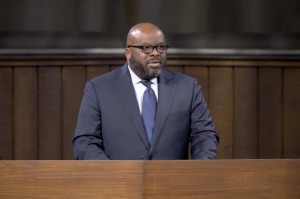Over 4 Percent of Death Row Inmates Likely Innocent, New Study Claims
A recent statistical study conducted by the National Academy of Sciences finds that at least 4.1 percent of death row inmates are likely innocent.
The study, published in the Proceedings of the National Academy of Sciences, was conducted by Samuel Gross of the University of Michigan Law School and three other researchers. The researchers concluded that of the prisoners sentenced to death in the U.S. from 1973 to 2004, 1.6 percent was found innocent and exonerated.
The study argues that this number does not reflect the true amount of innocent people sentenced to death in the U.S., because many death-sentenced defendants are removed from death row and instead given a life imprisonment sentence, and therefore their case loses the attention and resources for exoneration that it would have had, had the inmate remained on death row.
"The high rate of exoneration among death-sentenced defendants appears to be driven by the threat of execution," says the study. "But most death-sentenced defendants are removed from death row and resentenced to life imprisonment, after which the likelihood of exoneration drops sharply."
Gross and his team then used a statistical method called survival analysis to determine the total number of innocent defendants, had all inmates remained on death row for the entirety of their sentence. Using this model, researchers determined that "at least 4.1 percent would be exonerated. We conclude that this is a conservative estimate of the proportion of false conviction among death sentences in the United States."
The study goes on to cast a dismal outlook on the fate of innocent defendants, saying that "the great majority of innocent defendants who are convicted of capital murder in the United States are neither executed nor exonerated. They are sentenced, or resentenced to prison for life, and then forgotten."
The researchers add that they do not believe their statistical results indicate that a large number of innocent defendants have been executed, as so much legal scrutiny is given to death-row cases.
"We cannot estimate that number directly but we believe it is comparatively low," authors wrote. "If the rate were the same as our estimate for false death sentences, the number of innocents executed in the United States in the past 35 years would be more than 50. We do not believe this has happened."





























